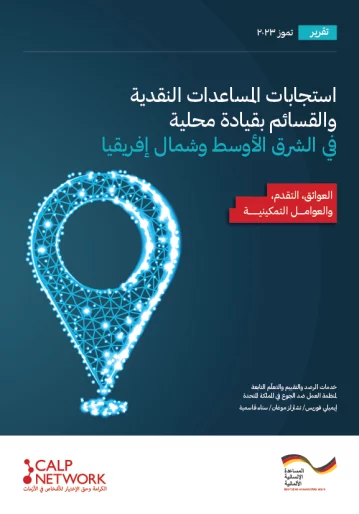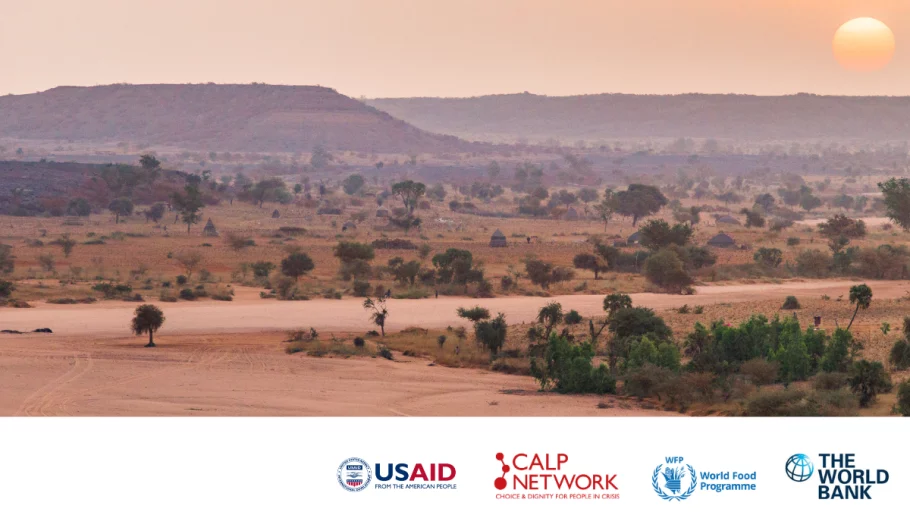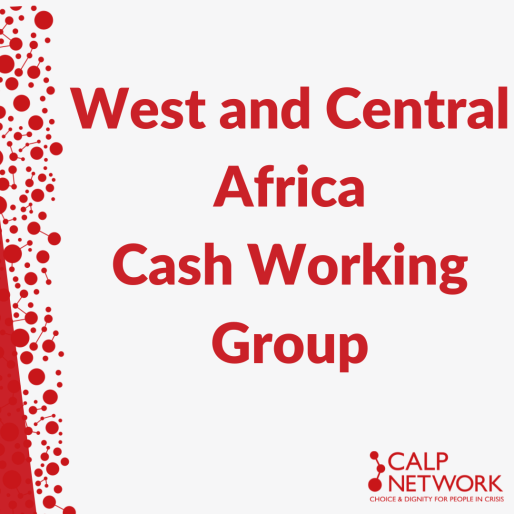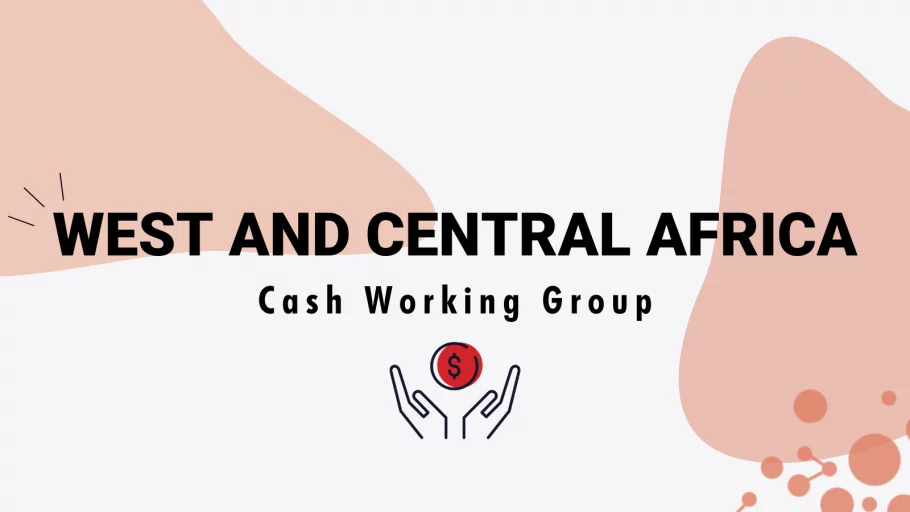المساعدات النقدية والقسائم والمخاطر
ما سبب أهمية هذا الموضوع؟
أحد الأسباب الرئيسية التي تجعل الجهات الفاعلة الإنسانية لا تفكر بشكل روتيني في النقد (الهدف رقم 2 من الإطار العالمي للعمل) هو تصورات المخاطر. ويرتبط هذا القلق بالتركيز المتزايد من قبل الجهات المانحة على مكافحة الإرهاب وغسيل الأموال وتقليص الميزانيات المخصصة للمساعدة الإنسانية.
كانت هذه نتيجة رئيسية من تقرير حالة العالم النقدي لشبكة CALP، والذي أشار أيضًا إلى أن الجهات المانحة قد تتسامح مع تحويل مبلغ صغير من المساعدات العينية ولكن يمكن أن تكون أكثر حساسية تجاه تحويل الأموال النقدية. تم نقل هذه الحساسية من الجهات المانحة إلى الوكالات الإنسانية الأخرى. تعتبر هذه القضية حساسة بشكل خاص في بيئات النزاع، حيث تشكل الجماعات المسلحة تهديدًا ويصعب على الجهات الفاعلة الإنسانية الوصول إلى المجتمعات المتضررة والإشراف على الاستجابة.
ما هو شكل التقدم المحرز في هذا المجال؟
لكي يتم النظر في المساعدات النقدية والقسائم بشكل منتظم، فإن النجاح يعني ما يلي:
- ويتم الكشف عن الخرافات بشأن المساعدات النقدية والقسائم ويتغير خطاب ومواقف وسلوك الجهات الفاعلة في المجال الإنساني حول مخاطر التحايل
- يتم النظر في المساعدات النقدية والقسائم بشكل منهجي وعلى قدم المساواة، على أساس أدلة المخاطر الفعلية عبر الطرائق
- لا تمنع الحواجز التنظيمية، مثل أجندة الجهات المانحة لمكافحة الإرهاب والتخلص من المخاطر، النظر المنتظم في النقد.
- يتم التعامل مع المخاطر من خلال التعاون بين الجهات الفاعلة الإنسانية التشغيلية والحكومات والجهات المانحة والمؤسسات المالية.
يمتلك الموظفون التشغيليون القدرات والأدوات العملية لتحديد المخاطر والتخفيف من حدتها.
للعمل نحو هذه الأهداف يعني معالجة المخاطر على مدار دورة المشروع، بناءً على الأسئلة التالية:
- تحليل الموقف: كيف يتم إدراك المخاطر الخاصة بالمساعدات النقدية والقسائم؟
- تحليل الاستجابة: كيف تؤثر مخاطر محددة من المساعدات النقدية والقسائم على اتخاذ القرار؟
- تصميم البرنامج: ما هي تدابير التخفيف المطبقة بالفعل؟
- التنفيذ: كيف يمكن أن اعتماد البرامج وتدابير التخفيف بمرور الوقت؟
- الرصد والتقييم: ما مدى فعالية تدابير التخفيف وما هو تأثيرها؟
المبادرات والأخبار الجارية
على مدار الأشهر المقبلة، سنعقد مجموعة من الاجتماعات مع الجهات الفاعلة لمناقشة مواضيع مختلفة تتعلق بموضوع المخاطر، مع أهداف تعزيز النقاش وتوليفه، وتوفير منتدى للجهات الفاعلة لمشاركة أفضل الممارسات، وضمان تعزيز الخبرات على المستوى الميداني في العالم.
17 تشرين الأول: الندوة: مشاركة البيانات الخاصة بالمساعدات النقدية والقسائم: الأخلاق والملكية والخصوصية
29 تشرين الأول: المساعدات النقية والقسائم والمخاطر المتعلقة بالاحتيال وحماية المستفيدين، دوالا، الكاميرون
31 أ تشرين الأول – 1 تشرين الأول: المساعدات النقدية والقسائم في سوريا، غازي عنتاب، تركيا (حدث خاص)
21 تشرين الثاني: الندوة: الجاهزية التنظيمي لإدارة البيانات.
26 تشرين الثاني: التركيز على حماية بيانات المستفيدين في العمل، داكار، السنغال.
4 كانون الاول: فعالية أسبوع النقد: مكافحة تمويل الإرهاب وتدابير مكافحة غسل الأموال في المساعدات النقدية والقسائم، ومسؤولية البيانات وحمايتها في المساعدات النقدية والقصائم في المجال الإنساني، لندن، المملكة المتحدة. تعرف على المزيد هنا.
تعمل مجموعة متنوعة من المنظمات حاليًا على المساعدات النقدية والقسائم والمخاطر. تعمل شبكة CALP على تحديد أوجه التآزر بين الجهات الفاعلة، وتجنب الازدواجية، وتحديد الأولويات المشتركة التي يمكن معالجتها بشكل جماعي بشكل أفضل. بالاشتراك مع برنامج الأغذية العالمي، تشارك شبكة CALP في تحديد أولوية المخاطر ضمن مسار عمل الصفقة الكبرى بشأن النقد.
دراسة حالة عن المخاطر في مالي باللغتين الإنجليزية والفرنسية.
دراسة حالة عن المساعدات النقدية والقسائم والمخاطر في اليمن، تقرير كامل.
يمكن مشاهدة ندوة الويب الخاصة بنا حول مشاركة البيانات في المساعدات النقدية والقسائم: الأخلاق والملكية والخصوصية
يمكن مشاهدة ندوة الويب الخاصة بنا التي تعرض رؤى من مؤلفي دراسات الحالة الخاصة بنا في اليمن وشمال مالي.
لمزيد من المعلومات، يرجى الاتصال بآنا كونداخشيان.
Latest

Post-Distribution Monitoring (PDM) – Multi-Purpose Cash Assistance
Case Study
Starting August 2022, WFP collaborated with the Ministry of Social Policy (MoSP) to serve people who had registered for humanitarian assistance through the E-dopomoga platform. Using the E-dopomoga registry, WFP oriented its cash assistance towards parts of the country closest to the frontline and most...

Alignment Options for Humanitarian Cash with the Ukrainian Social Protection System
Report
Cash assistance, and multi-purpose cash assistance (MPCA) specifically, are a vital part of the humanitarian response in Ukraine. Over half of the projects listed in the 2023 Humanitarian Response Plan have a cash transfer or voucher component. By June 2023, approximately 8 million people received...

Overcoming power imbalances: Community recommendations for breaking the cycle
Report
Ground Truth Solutions has been tracking people’s perceptions in Somalia since 2017. Following a recent quantitative survey with cash and voucher recipients, as part of our Cash Barometer project, we carried out focus group discussions to discuss our findings with community members and gather their...

“Men have the power to say everything, women don’t.” Women’s perceptions of cash and voucher assistance in Maiduguri’s outskirts
Case Study
In northeast Nigeria, women and girls constitute approximately two-thirds of cash and voucher assistance (CVA) recipients. However, stark gender inequalities in the region make it difficult to hear women’s perspectives. This study aims to amplify their voices and concerns to inform decision-making...

Acting Before Disaster Strikes: The impacts of anticipatory cash transfers on climate resilience in Northeast Nigeria
Case Study
IRC’s research – the first experimental evidence from a randomized controlled trial (RCT) on how anticipatory cash compares to post-shock cash transfers in a conflict-affected environment – highlights that anticipatory action is critical to meeting the short- and longer-term needs of households...

استجابات المساعدات النقدية والقسائم بقيادة محلية في الشرق الأوسط وشمال أفريقيا: التقدم والعوامل التمكينية والعوائق
دراسة حالة
يسلط هذا البحث الضوء على فترات التوتر بين الالتزام المبلغ عنه للقطاع الإنساني تجاه التمكين المحلي وبين الخطوات الفعلية المتخذة لتعزيز المساعدات النقدية والقسائم (CVA)...

تقرير الاجتماع رفيع المستوى: الحاجة إلى تحديث السياسات الإنسانية
محضر اجتماع
عقد مكتب المساعدات الإنسانية التابع للوكالة الأمريكية للتنمية الدولية وشبكة CALP اجتماعًا رفيع المستوى للقيادات العليا من مجتمع المساعدات النقدية والقسائم في 15 حزيران...

Regional Learning Event Latin America and the Caribbean: Social protection systems and response to humanitarian crisis with CVA
Members event
In order to continue strengthening the dialogue between humanitarian and social protection actors, the RED LAC Group in collaboration with the Cash Working Group – R4V, with support from the CALP Network, CashCap/Norcap, IFRC, Save the Children, OCHA, UNICEF, and the World Food Programme, are organizing...

Remote targeting approaches: global lessons and applications in West and Central Africa
Event
The Sahel region is one of the most vulnerable regions in the world, due to a combination of chronic underdevelopment, high demographic growth, high exposure to natural hazards, expanding conflicts, and climatic shocks, as well as chronic food insecurity and malnutrition. Challenging geographies,...

Impact Evaluation of Cash-Based Transfers and Gender in Kenya: Inception report
Guidelines and Tools
Gender inequality in economic autonomy is pervasive, particularly in developing countries, and its potential welfare implications are concerning. The World Economic Forum’s (WEF) Global Gender Gap Report for 2022 ranks Kenya as 57th for the Gender Gap on Economic participation, and an opportunity index...

Onward Bound: Evaluating Cash and Voucher Assistance for Migrants on Sahel’s Migration Trail – Research and learnings from the Sahel region
Report
This research – a collaboration between the British Red Cross and Samuel Hall – provides evidence on the opportunities and challenges to integrate cash and vouchers assistance (CVA) as a support modality in migration programming in the context of transit migration in the Sahel. While CVA has become...

Open Partner Survey for Cash and Voucher Assistance (CVA) in Response to a Crisis
Report
The open partner survey for cash and voucher assistance (CVA) in response to a crisis is a collaborative effort between REDLAC and the Regional Cash Working Group (R4V), with technical support from CashCap/NORCAP and the participation of multiple organizations. This report provides an analysis of the...

Eastern Africa Regional Cash Working Group Meeting
Event
This is a Save the Date for the next East Africa Regional Cash Working Group meeting that will take place on Thursday 13 July 2023, from 2.30pm (EAT) online. The agenda will primarily focus on adapting CVA in the context of high inflation work. If you have any questions, please contact:...

Webinar: Digital Accountability in Cash and Voucher Assistance
Members event
New tech, old problems — can digital accountability in cash and voucher assistance help us get the basics right?

Calculating transfer values in West and Central Africa: With learnings from Cameroon and Niger
Event
You are invited to join us for a webinar exploring how we can better determine and use transfer value calculations in the region. We will share learnings from experiences in Cameroon and Niger.

Joint Market Assessment Report
Report
This report assesses the feasibility of implementing Cash and Voucher Assistance (CVA), specifically Multipurpose Cash Assistance (MPCA), to support individuals impacted by the recent earthquake. The evaluation focuses on the availability of items, price increases, access to shops, and acceptance of cash...

جعل النقد أكثر تركيزًا على الناس: نصائح عملية من الإتحاد الدولي لجمعيات الصليب الأحمر والهلال الأحمر
Blog Post
قام الإتحاد الدولي لجمعيات الصليب الأحمر والهلال الأحمر بإعداد دورة قصيرة عبر الإنترنت للعاملين في المجال الإنساني، تسلط الضوء على دور المشاركة المجتمعية في...

Regional Cash Working Group – WCAF
Event
This is a Save the Date for the next Regional Cash Working Group meeting that will take place on Wednesday 5 July 2023, from 9am to 11am (GMT) face to face and online. (register here) The meeting will have simultaneous interpretation in English and French. The draft agenda for this meeting will...

Minutes and presentations from the WCAF regional CWG
Meeting minutes
Minutes and presentations from the WCAF regional CWG – 5 July 2023 Watch the recording here:

ماذا تعني الصفقة الكبرى 3.0 بالنسبة للمساعدات النقدية والقسائم؟
أخبار
ملخص لآخر التطورات حول الصفقة الكبرى، وما تعنيه للمساعدات النقدية والقسائم الإنسانية.


